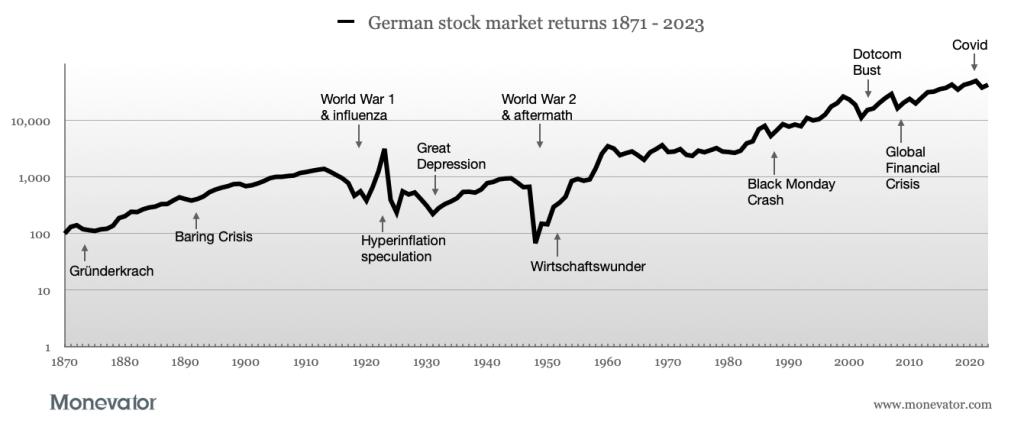
What caught my eye this week.
One reason you hear more people complaining about high taxes these days is because more people are paying higher-rate taxes.
At the start of the 1990s, just 3.5% of UK adults were in the upper tax band. That wasn’t exactly fun – and there was a recession coming, with a big housing crash imminent. But least those 1.6 million higher-rate payers could console themselves they were members of an earning elite, of sorts.
Loadsamoney? Not any more. We’ve only just begun to slog through a six-year freeze on tax thresholds that is set to send the number of higher-rate taxpayers to 7.8 million by 2028.
If nothing else it should be a boom time for tax accountants.
Check out this graph from the IFS:
The higher-rate threshold today starts at £50,570. For the same share of the population to be paying higher-rate taxes as were in 1991, the IFS calculates the threshold would need to be nearer to £100,000 in 2028.
As things stand it will be… £50,570.
There’s an argument that a broader tax base is more equitable and sustainable, I suppose. But good luck raising it in the midst of raging inflation, rising mortgage rates, and disquiet over the state of the public services, especially healthcare.
People can see their money doesn’t go as far as it used to with their own spending, and they’re impatient with what they’re getting for their taxes too.
The UK economy is stagnant and ONS figures show productivity growth has slipped to the lowest level in a decade. (At least energy bills are set to fall – a windfall for both our wallets and also the State purse, given the energy price guarantee.)
Thanks to high inflation and the frozen thresholds, some will even find their incomes go nowhere in real terms1 over the next few years – yet they’ll be taxed more heavily on the top slice of what they do earn, because they’ll be dragged into a higher-rate tax bracket.
It could be you
It’s not a pretty picture, but we only recently did politics so let’s leave that for another day.
Instead I wonder how closely Monevator readers reflect the national statistics?
My instinct is we’re overweight higher-rate payers. Though I guess perhaps a heavier skew to retirees might bring the number back down?
An anonymous poll! Please select according to the highest official rate of UK income tax you pay:
Which tax bracket are you in?
So much for where we’re at today. But if you’re currently a basic-rate tax payer, do you think you’ll be dragged into the higher-rate bracket by 2028?
And if you’re already paying higher-rate taxes – perhaps even the marginal rates the crazy system introduces – are you taking evasive action (such as diverting more salary into your SIPP) to curb the damage?
Let us know in the comments below, and have a great weekend!
From Monevator
Investor compensation schemes: are you covered? – Monevator
Too good to be true: on investment opinion, commentary, and third-party analysis – Monevator
From the archive-ator: Holiday strategies to refresh a frugal soul – Monevator
News
Note: Some links are Google search results – in PC/desktop view click through to read the article. Try privacy/incognito mode to avoid cookies. Consider subscribing to sites you visit a lot.
Government introduces sweeping changes with Renters’ Reform Bill – GOV.UK
Two-thirds of Britain’s mortgage rise pain to come – Resolution Foundation
Renters need £617,000 plus state pension for ‘moderate’ retirement – This Is Money
Annual energy bills should soon fall to an average of £2,053 – Sky
Soldiers to be trained to check passports at UK borders – Guardian
George Osborne to lead £2.4bn investment management firm – Guardian
Fallen darling Purplebricks sold to rival estate agent for £1 – BBC
Rishi Sunak cites… cheaper beer and tampons as the Brexit benefits – Guardian
Vice media files for bankruptcy – Hollywood Reporter
Wait for probate hits at least two months – Which
Products and services
Will you qualify for Nationwide’s £100 member bonus? – Be Clever With Your Cash
Five reasons you’re wrong about switching broadband provider – Which
Open a SIPP with Interactive Investor and pay no SIPP fee for six months. Terms apply – Interactive Investor
Should you spend £229 or £2,149 on a washing machine? – This Is Money
Lloyds’ new £150 current account switching offer comes with a perk – Which
Open an account with low-cost platform InvestEngine via our link and get £25 when you invest at least £100 (T&Cs apply. Capital at risk) – InvestEngine
How to fly economy class but feel like you’re in business – Guardian
Homes for sale close to the sea, in pictures – Guardian
Stealth wealth mini-special
There’s no secret to how wealthy people dress – The Atlantic via MSN
The quiet luxury of language – Dror Poleg
Comment and opinion
Why has the equal weighted S&P 500 index beaten the market cap weighted? – Morningstar
The spectrum of financial (in)dependence – Morgan Housel
Was a ‘price-price spiral’ behind the inflation shock? – Stay At Home Macro
Era of “massive” UK house prices near end, says OBR economist – Guardian
Can we ever really have enough? – Forbes
The pandemic was an experience in hedging your life – Financial Samurai
Halving inflation isn’t going to transform Tory fortunes – David Smith
The problem with investing in bond indexes [Podcast] – Peter Lazaroff
An overview of factor investing and its pros and cons – Humble Dollar
Active outperformance: luck or skill? [Spoiler alert…] – T.E.B.I.
Protecting seniors – Humble Dollar
Naughty corner: Active antics
Six ways that UK equities look like a bargain – Schroders
Investing in wind farms, motorways and phone masts [Search result] – FT
Finding quality stocks using profitability ratios – UK Dividend Stocks
Concentrating on the best – Verdad
Something’s gotta give: investing ahead of deglobalisation – Sapient Capital
US small caps look cheap versus large caps – Janus Henderson
Look beyond expensive US stocks, says GMO – Institutional Investor
The coming Greek ‘megacycle’ [Search result] – FT
The Winner’s Game – Investment Talk
Kindle book bargains
The Moneyless Man: A Year of Freeconomic Living by Mark Boyle – £0.99 on Kindle
200 Years of Muddling Through: The British Economy by Duncan Weldon – £0.99 on Kindle
A Journey Through Labour’s Lost England by Sebastian Payne – £0.99 on Kindle
Too Big To Jail: The Greatest Banking Scandal of the Century by Chris Blackhurst – £0.99 on Kindle
Environmental factors
Where to find the energy to save the world – Wired
UN: world likely to see hottest year on record in next five years… – Axios
…at least saving the Ozone Layer stopped it being even worse – Hakai
Could restaurants solve the world’s jellyfish problem? – BBC
The first really awesome biodiversity-meets-investing resource – K.O.I.
Octopus and L&G make £70m in UK heat pump manufacturer – This Is Money
Crypto o’ crypto
A retrospective on the crypto runs of 2022 – Chicago Fed
One million individual wallets now hold a whole Bitcoin – CoinDesk
Robot overlord roundup
The coming AI battles at the international level – Stratechery
What ChatGPT means for investment professionals – CFA Institute
Searching for investment answers – Humble Dollar
Example of someone already taking the guardrails off an AI model – Eric Hartford
ChatGPT can’t do much for everyday investors yet… – Savant Wealth
…but could enable radical visual strategies in the future – Institutional Investor
Off our beat
How England’s seaside towns became both a trap and a refuge – Prospect
Choose the activism that won’t make you miserable – The Atlantic via MSN
How Formula 1 became the world’s fastest growing sport – Huddle Up
He told followers to starve to meet Jesus. Why did they? – N.Y.T. via Yahoo
The ‘return to the office’ won’t save the office – Vox
And finally…
“He who has learned to disagree without being disagreeable has discovered the most valuable secret of negotiation.”
– Chris Voss, Never Split the Difference
Like these links? Subscribe to get them every Friday. Note this article includes affiliate links, such as from Amazon and Interactive Investor.
That is, inflation-adjusted.
The post Weekend reading: Higher calling appeared first on Monevator.



